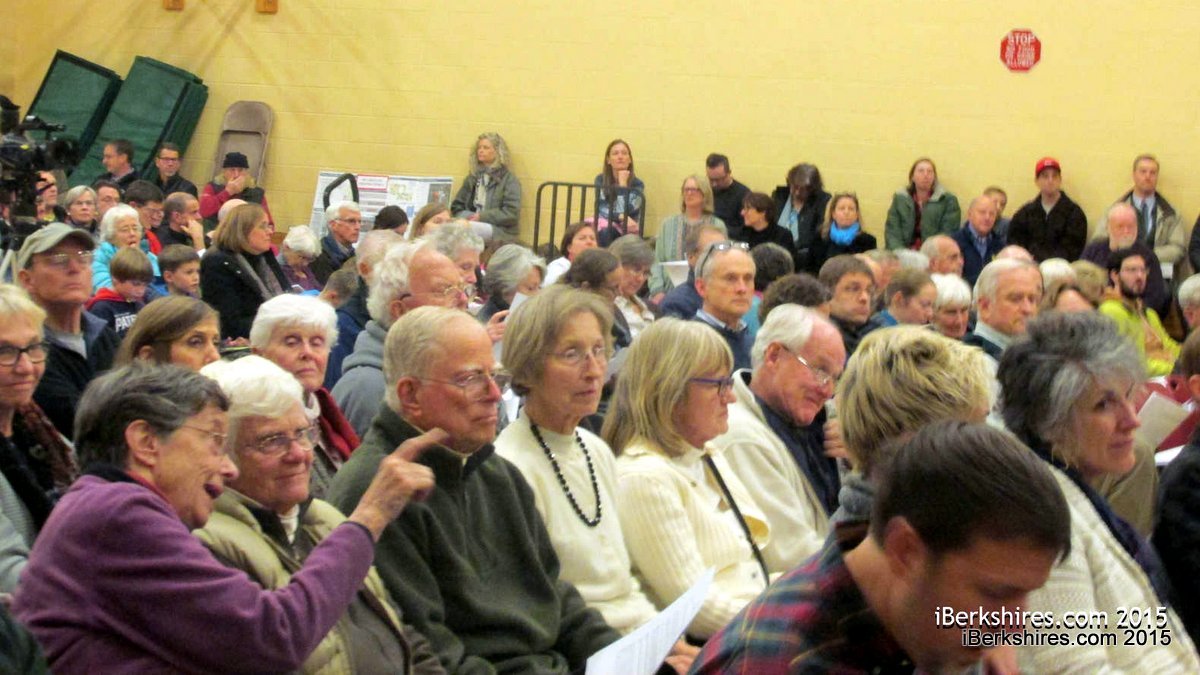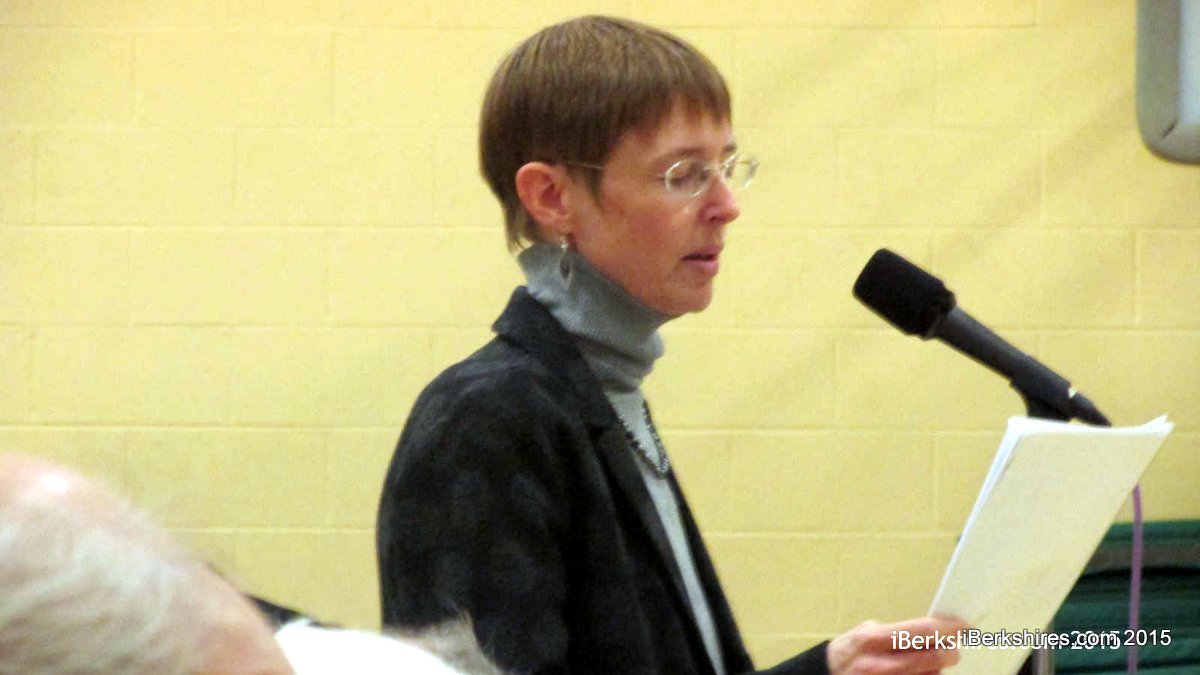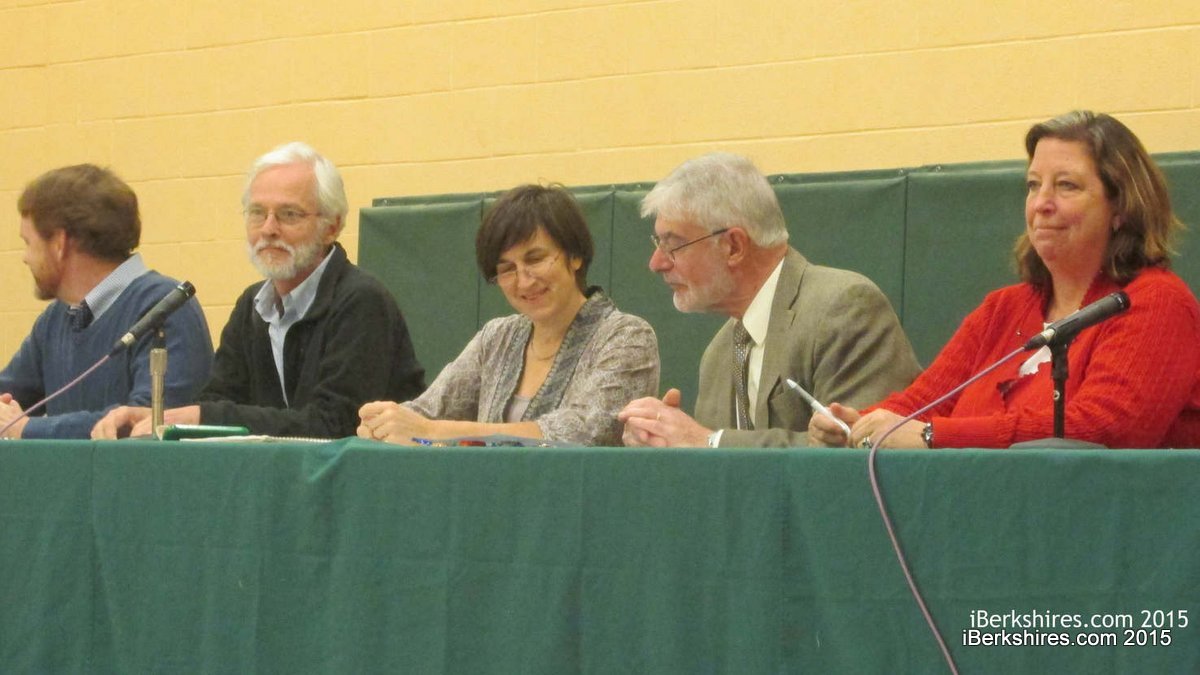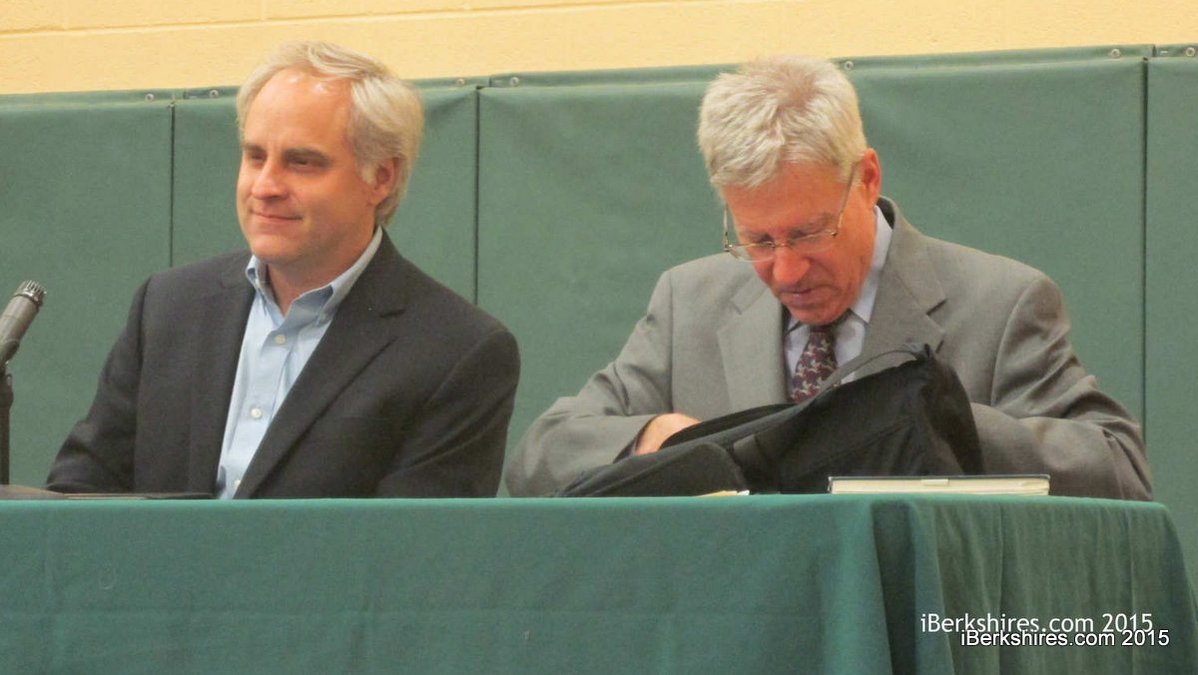



Williamstown Approves Amended Mount Greylock Agreement
WILLIAMSTOWN, Mass. — Without a question from the floor or a single negative vote, a special town meeting on Tuesday approved the amended Mount Greylock Regional School District agreement.
The agreement now needs approval of the junior-senior high school district's other member town. Lanesborough voters are scheduled to hear the question on Tuesday, Dec. 1, at 7 p.m. at Lanesborough Elementary School.
The amendment was drafted by the Mount Greylock School Committee, which wanted to make the district's apportionment of capital expenses more "fair, equitable and dynamic," School Committee Chairwoman Carolyn Greene told Williamstown voters on Tuesday.
After she gave a brief, prepared explanation to the meeting, Town Moderator Adam Filson called for comments or questions from the floor. Hearing none, he immediately called the question, which was passed unanimously by voice vote.
Town Clerk Mary Kennedy reported that 220 of the town's 4,615 registered voters checked in to the meeting, though there appeared to be many more than that number seated in the Williamstown Elementary School gymnasium.
After the five-minute special town meeting, Greene said she was pleased with the turnout and the unanimity of the vote.
"The fact that there were no questions, I think, demonstrates that we got the information out there, that it was accessible and that people understood it," Greene said. "And they came to support what they knew was the right thing to do."
The proposed new apportionment plan is thought to be more fair because it is not static like the current funding mechanism.
Under the existing agreement, the district locks in the apportionment split at the time of bonding based on a formula that gives equal weight to the two towns' student enrollment at Mount Greylock and the two towns' state-equalized property values at the time of bonding.
The revised agreement uses the same student population/property value split but readjusts those numbers each year. At the time of a new bond — like the hoped-for renovation/addition project — the cost of the debt would be apportioned in the first year using the equalized value and student population at the time of the bond.
In Year 2, student population share would be an average of the first two years' populations, in Year 3, it would average the first three years, etc., until a five-year average is attained.
The school district already uses a five-year rolling enrollment average to apportion operating expenses. That formula was approved by both towns in 2010.
The proposed amendment to change the capital apportionment was prompted by a request from Lanesborough officials, who apparently were concerned student populations from the town would fall relative to Williamstown's during the life of a projected 29-year bond to pay for the proposed school building project.
If Lanesborough voters approve the amended agreement on Dec. 1, the new apportionment plan will take effect before a debt exclusion vote on the building project. That vote could come as early as spring 2016.
All in all, it was a good week for the sometimes contentious school district. On Monday, the Lanesborough Board of Selectmen unanimously recommended passage of the amended regional agreement by special town meeting. The Lanesborough board also decided not to ask voters at the same meeting whether it should look at other options for the town's seventh- through 12th-grade students.
"I feel like it's starting to turn a corner a little bit in Lanesborough," Greene said. "I don't think there's any real interest on the part of the voted officials or the public to leave Mount Greylock. There is an interest in helping to relieve any financial burden that a school building project might place on the public. But we're doing everything we can, and we'll know more on Thursday [at a School Building Committee meeting] about those numbers.
"I think they know we're trying, and there's a level of trust there that's developing — a level of confidence that we're listening to them and we're responsive."
Tags: apportionment, MGRHS, special town meeting,















